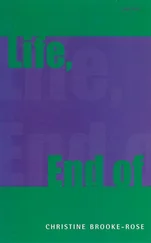— Have you?
— What?
— Been initiated.
The Bahuko nurse emerges in pink and white calico and calls out the correct identity, the recognisable label, the dog’s dinner bell. Hope rises with the body on the weight of tingling legs.
— I thought you had. You won’t forget?
— No.
— You will wait for me, won’t you?
— This way.
It depends which kind of Chinese the doctor is, a renegade from Chinese Europe or a refugee from Sino-America, or even a renegade from Sino-America. Or an Afro-Eurasian born and bred, by chance descendance perhaps or any number of individual circumstances.
— So we were a psychopath, were we? We have a sense of humour, yes? Sit down. Strange, that is not what Mrs. Mgulu gives me to understand in her letter. Hmmm.
The gesture is one of careful record-keeping. The fingers move swiftly over the white paper, holding a black pen. The eyes move from right to left in their slits, following the letter. Dear Dr. Fu Teng. I am sending you one of my workers who suffers from humour deficiency. Who suffers from an imbalance of all the humours. Dear Dr. Fu Teng, kindly weigh this patient in the balance and find him wanting me, Mrs. Mgulu. It is important that he should declare himself. The fingers move swiftly back to the beginning of the line. Dear Dr. Fu Teng. Kindly provide this patient with a technique for living.
— Yes. Well, clearly you don’t in fact need psychoscopy. However, if that’s what Mrs. Mgulu wants, we’ll have to give it to you.
— But doctor –
— Yes?
— Aren’t you going to examine me?
— I have examined you. We have our methods if you don’t mind. I can tell you one thing, you haven’t got what you think you have, oh yes, I know what you’re thinking, you all think it, the existence of this thing has turned you people into drivelling hypochondriacs. However, if you insist, you can have routine tests. Nurse, blood count, steroids, M.S.U., B.M.R., P.B.I., the lot. And a form for psychoscopy please.
Mrs. Mgulu emerges from behind the screen in a gold helmet and a mauve dress. She takes the pulse carefully, looking down at the gold watch that hangs upside down on her left breast. She holds the watch a little outwards with the thumb and forefinger of the left hand.
— How are you feeling now? Does it hurt?
— Yes.
— Let me fix your pillows for you. There, that’s better.
The gold watch sways, the gold chain on the nostril and cheek trembles with the motion, the scent is of aloes and hair fixative, the eyes strike deep, a rich chromatic chord expressing secret knowledge and concern perhaps that bears a strong resemblance to the real thing. It is not merely that I desire you physically, which would be understandable in any circumstances, but that he watches me desire you, peering at me with bland inscrutability in his lidless eyes, the lower edges of which are straight and upwards slanting, the upper edges of which are curved but vanishing, into the skin of the face itself. Mrs. Mgulu leans her plunging neckline forward and says you know, don’t you, it’s only kidney trouble.
— What’s that? Who said you had kidney trouble? What books have you been reading? Speak up now, I can’t hear you.
— I haven’t been reading any books.
— Well, you must have got these items from somewhere. But they’re all wrong you know. You mustn’t imagine things.
— It’s so difficult, living in the present.
— Who said you had to live in the present? The present contains the future. Who have you been talking to? You mustn’t get ideas, you know.
— Doctor, tell me, is there a secret?
Dr. Fu Teng writes busily. The vibration of the voice has not been sufficient to carry the question over to him and the question evaporates, leaving no trace of error in the air, except perhaps a residue at the back of the mind, to be answered by Mr. Swaminathan in his own good time, slow time. Clearly Dr. Fu Teng is an Afro-Eurasian born and bred, by chance descendance perhaps, or any number of individual circumstances.
— Right. There’s the file, nurse, get it sent round, will you. And call the next patient.
— Doctor. What is the answer?
— This way please.
A nod can mean dismissal. Either the vibration of the voice has been insufficient or the dismissal would anyway have occurred. The fact that Mr. Swaminathan has not nodded and will not nod ever should be viewed in this light. On the other hand the fact that Mr. Swaminathan has not nodded and will not nod ever is of no significance.
The exit door leads into the test cubicles. The test cubicles lead into one another and are for urinating, bleeding, drinking radio-active iodine through a straw, dreaming, conversing with Mrs. Mgulu and having her traced with isotopes, lying at 5 a.m. under a space-man helmet that measures the moment of truth in the blood. The process is known as degradation, out of which the complete molecule must be built up stage by stage, using unambiguous reactions until total synthesis is achieved, which will finally confirm the method of breakdown. The test cubicles lead out into a pale green corridor lined with doors and guiding notices. The doors are white. The guiding notices are white with large red letters. The legs of the waiting females are white, those of the waiting males are trousered in faded denim.
The microscopes are gathered all around, pointing downwards and converging. The heat from the lights induces a state of pyrexia. Between two of the converging microscopes the monitoring screen hangs from the ceiling and shows a fresh white jellyfish on a pale green background, with yellowish white filaments flowing downwards and long black tentacles flowing upwards out of a purple outer skin that covers only the top of the jellyfish. But now the smooth asphalt face of the interviewer is on the screen patched with curved oblongs and blobs of white reflected light.
— Don’t keep looking up at the monitor, it spoils the picture. Look at me or else straight at the viewer, that is, the camera in front of you. Don’t look at the other cameras either.
— I can’t turn my head anyway, with all those wires attached to it.
— That’s for the toposcope. Now you’re not nervous are you? Just relax. We’re going to diagnose first then proceed to treatment, though not necessarily in one session. It depends how much resistance you put up.
— Dr. Lukulwe, says the loudspeaker somewhere.
— Yes, doctor? says the interviewer here.
— Give me a spot of level will you.
— One two three four five Monday Tuesday Wednesday Thursday.
— Thank you but more natural. Have you briefed the patient?
— I was just doing so, Doctor Benin.
— Carry on, I’m listening.
— Right. Well now, I have to tell you that the lies show up immediately on the oscillograph. No moral judgment is involved so don’t worry about it, the lies are themselves revealing and help diagnosis. One-man truths, that is to say, delusions, will appear on the depth-photography screen, but only in the long run. That’s why we have to give it a long run, but it’s for your own sake. You’re not to worry about a thing, just relax. You ready? Dr. Benin, we’re ready when you are.
— Fine. Stand by recordings. We shoot in … ten seconds … from … now …
— Well, sir, since you’ve heard the discussion, could you give us your views on the situation?
— Er … what situation?
— Come come. Your situation. Just relax, let the drug talk for you.
— It isn’t working yet.
— It will in a second.
— Well … the situation is highly inflammatory and demands a serious reappraisal.
— What exactly do you mean by reappraisal?
— There will have to be an investigation.
Читать дальше












